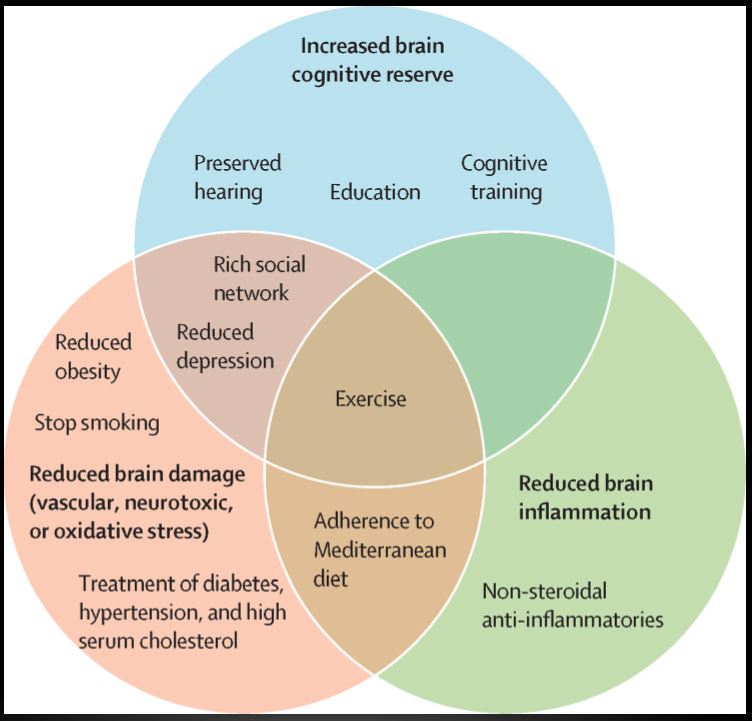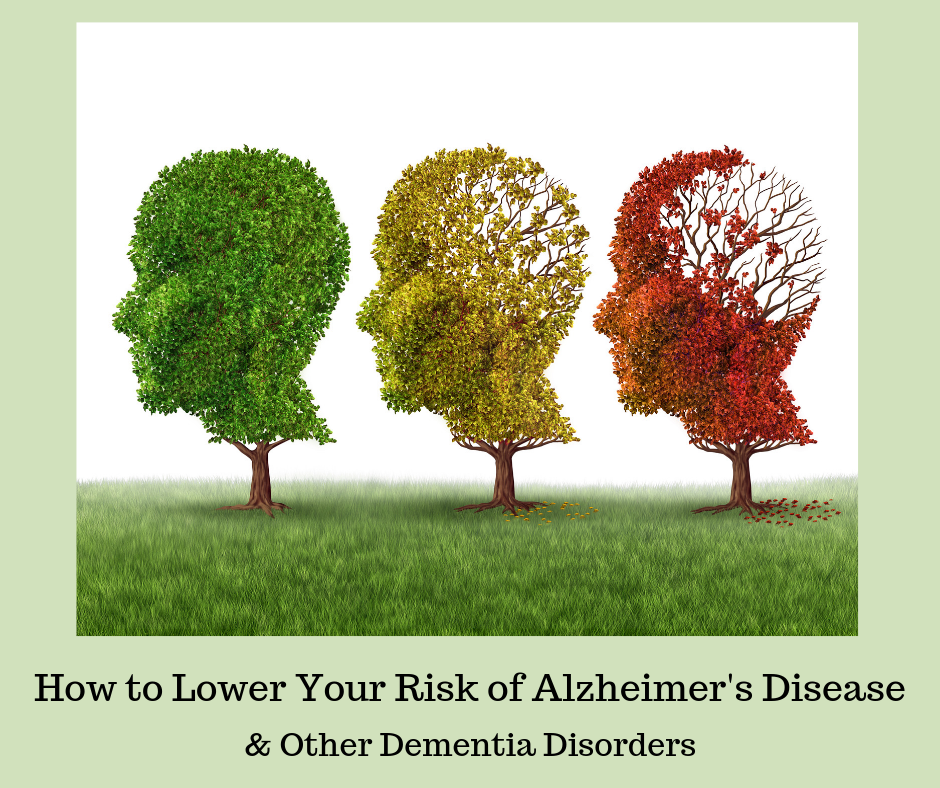One of Symmetry’s patients, Nancy S., has been attending a fascinating lecture series sponsored by the University of Texas. The series has to do with neuroscience and the complicated workings of the human brain. Recently, Nancy shared a slide with us that was presented at one of these seminars, entitled “Your Brain – A Personal Tour.” It seems relevant to post it here as a visual reminder about the importance of establishing healthy, lifelong exercise habits.
As you can see, the slide depicts several spheres that include actions that can be taken to reduce the risk of developing Alzheimer’s Disease (AD). Some actions specifically relate to brain activity. Others relate to management of global mental and physical health. There is overlap between the different spheres. And at the center of all of the spheres is a single, very important word: EXERCISE.

According to seminar Director / Speaker Steve Saltwick, a PhD BioPsychologist trained at UT Austin, other forms of adult dementia besides Alzheimer’s have been found to respond positively to similar strategies. Consider these additional Dementia Statistics from BrainTest for motivation to take care of your brain!
- 7.7 million NEW cases of dementia are diagnosed each year worldwide. An estimated 5 million Americans are currently living with dementia.
- Alzheimer’s Disease comprises about 70% of all dementia cases
- 1 in 6 women and 1 in 10 men over the age of 55 is expected to develop dementia
Dementia is not a reversible disorder. And while there are a variety of promising treatments in practice and in development, there are currently no cures for Alzheimer’s Disease or other types of dementia. According to this article published by the National Institute on Aging, the best accepted current treatment approaches aim to “help people maintain mental function, manage behavioral symptoms, and slow down problems such as memory loss.” So let’s all get up and move around a bit, shall we? Our brains will be appreciative!

